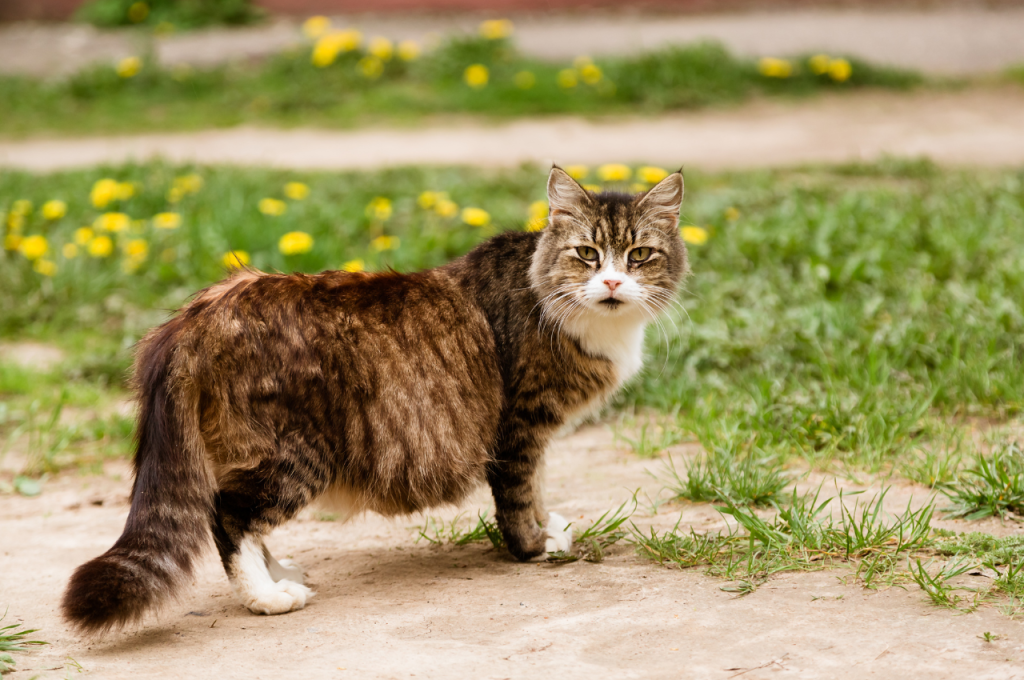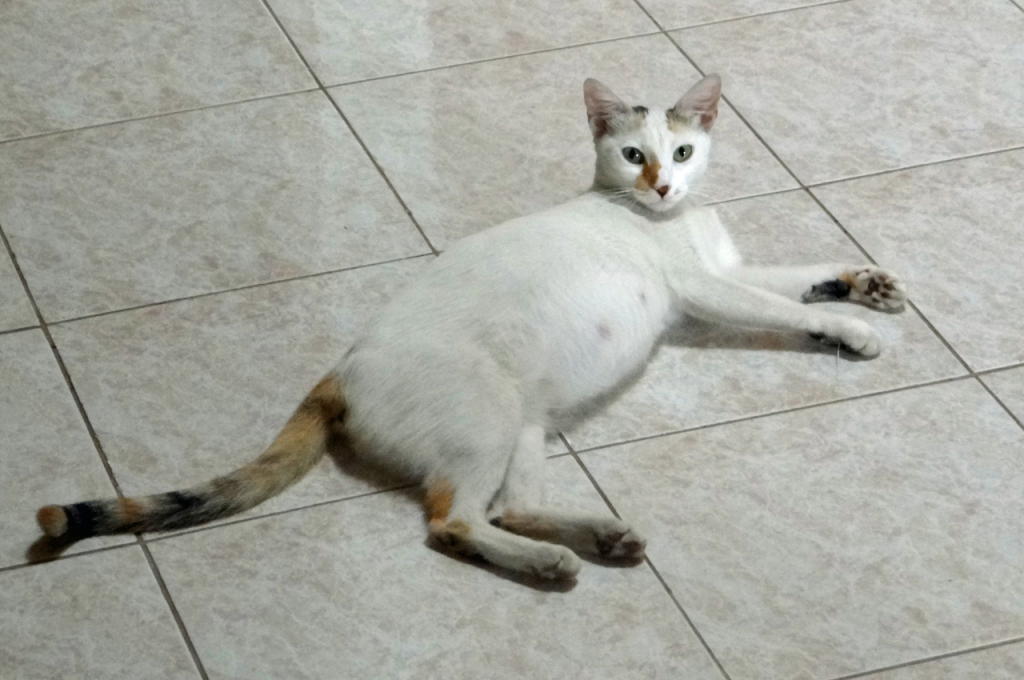Cats are pregnant for approximately 63 to 67 days. Cats have a gestation period of about 63 to 67 days.
During this time, the female cat goes through various stages of pregnancy, including mating, fertilization, and embryo development. It is important to note that the exact duration of a cat’s pregnancy can vary slightly depending on factors such as breed and individual cat health.
Understanding the length of a cat’s pregnancy is crucial for cat owners and breeders to ensure proper care and preparation for the arrival of kittens. In this blog post, we will delve deeper into the different stages of cat pregnancy, the signs of pregnancy to look out for, and how to provide the best care for pregnant cats.
The Feline Pregnancy Journey
The feline pregnancy journey typically lasts around 63-65 days, with some variation. During this time, cats undergo physical and behavioral changes as they prepare for motherhood. Understanding the duration of cat pregnancy is essential for providing proper care and support to the expectant mother.

Cat owners may wonder how long their feline friends are pregnant. The journey of feline pregnancy is a crucial time for both the mother and kittens. Knowing the signs and stages of feline gestation can help cat owners prepare for the arrival of new kittens and provide the necessary care for the mother.
Signs of Cat Pregnancy
It can be challenging to tell if a cat is pregnant during the early stages. However, there are a few signs to look out for. The nipples of the cat become darker and more prominent, and the cat may experience morning sickness. Cat owners may also notice that their cats become more affectionate and start seeking out quiet and dark places to rest.
Stages of Feline Gestation
The gestation period for cats lasts approximately 63 to 65 days, and it is divided into three stages. During the first stage, the fertilized eggs travel to the uterus and start to implant. The second stage is the fetal development stage, where the kittens grow and develop organs. The final stage is the birth stage, where the mother cat goes into labor and delivers her kittens.
During the gestation period, it is essential to provide the mother cat with proper nutrition, plenty of rest, and medical care. Cat owners should also prepare for the arrival of the kittens by setting up a comfortable and safe space for them to be born and grow. In conclusion, understanding the signs and stages of feline gestation can help cat owners provide the necessary care for their pregnant cats. From proper nutrition to a comfortable and safe space for the kittens, taking care of a pregnant cat is a significant responsibility.
Duration of Cat Pregnancy
As a cat owner, it’s important to know how long your feline friend will be pregnant. The duration of cat pregnancy is influenced by various factors and can vary from one cat to another. In this article, we will explore the average length of gestation and the factors that can affect pregnancy duration.
Average Length of Gestation
The average length of gestation for cats is around 63-65 days, which is about nine weeks. However, it’s important to note that this is just an average, and some cats may give birth a few days earlier or later than expected. Additionally, the length of gestation can be influenced by various factors, such as the age and health of the mother cat, the size of the litter, and the breed of the cat.
Factors Affecting Pregnancy Duration
Several factors can affect the duration of cat pregnancy including:
- Age of the Mother Cat: Older cats may have a slightly longer gestation period than younger cats.
- Size of the Litter: The size of the litter can also affect the duration of pregnancy. Cats carrying larger litters may have a shorter gestation period than those carrying smaller litters.
- Breed of the Cat: Different cat breeds have different gestation periods. For example, Siamese cats tend to have a shorter gestation period than Persian cats.
- Health of the Mother Cat: The health of the mother cat can also play a role in the duration of pregnancy. Cats that are in poor health may have longer gestation periods.
It’s important to note that if you suspect that your cat is pregnant, you should take her to the vet for a check-up. Your vet can provide you with more information about the duration of pregnancy and can monitor your cat’s health throughout the pregnancy.
Detecting Pregnancy in Cats
Knowing whether your cat is pregnant is an important step in ensuring her health and well-being. Cats have a relatively short gestation period compared to humans, typically lasting around 63 to 65 days. However, detecting pregnancy in cats can be challenging without proper observation or veterinary confirmation. In this article, we will explore two methods to determine if your cat is pregnant: veterinary confirmation and at-home observations.
Veterinary Confirmation
Visiting a veterinarian is the most accurate way to determine if your cat is pregnant. A veterinary professional can perform various diagnostic tests, such as ultrasound or palpation, to detect the presence of kittens. Ultrasound allows the vet to visualize the developing embryos or fetuses, while palpation involves gently feeling the abdomen to detect the presence of enlargements or small lumps.
During the veterinary examination, the vet may also check for other signs of pregnancy, such as changes in the nipples or uterus. They can provide you with an estimated due date and offer guidance on prenatal care for your cat.
At-home Observations
If you prefer to observe your cat’s behavior and physical changes at home, there are several signs that may indicate pregnancy. However, keep in mind that these signs are not definitive and should be used as a starting point for further investigation or veterinary confirmation.

Here are some key observations to make:
- Changes in Appetite: A pregnant cat may experience an increase or decrease in appetite. Pay attention to any noticeable changes in her eating habits.
- Weight Gain: Pregnancy can cause weight gain in cats. Regularly weigh your cat and monitor any significant increase in her weight.
- Nipple Changes: As pregnancy progresses, a cat’s nipples may become enlarged and pinker in color. Observe any changes in the appearance or sensitivity of her nipples.
- Behavioral Changes: Pregnant cats may display nesting behaviors, such as searching for secluded spots or rearranging bedding. They may also become more affectionate or show signs of restlessness.
If you notice these signs and suspect that your cat may be pregnant, it is essential to consult with a veterinarian to confirm the pregnancy and ensure the appropriate care for your furry friend.
Changes During Pregnancy
Changes during pregnancy are a fascinating and crucial aspect of a cat’s journey to motherhood. Understanding the physical alterations and behavioral shifts that occur during this period is essential for cat owners to provide proper care and support. Let’s delve into these changes in more detail.
Physical Alterations
Throughout pregnancy, a cat undergoes various physical transformations as her body prepares to nurture and give birth to her kittens. These alterations include:
- Weight Gain: A pregnant cat typically gains 2-4 pounds as the pregnancy progresses.
- Abdominal Enlargement: The cat’s belly gradually expands to accommodate the growing fetuses.
- Development of Mammary Glands: The mammary glands become more prominent and may start producing milk towards the end of pregnancy.
- Increased Appetite: Due to the demands of pregnancy, a cat’s appetite may increase, leading to more frequent meals.
Behavioral Shifts
Alongside the physical changes, pregnant cats also exhibit a range of behavioral shifts as they adapt to their maternal role. These shifts can include:
- Nesting Instinct: A pregnant cat may start seeking out secluded, comfortable spots to prepare for the birth of her kittens.
- Increased Affection: Some cats become more affectionate and seek additional attention from their owners during pregnancy.
- Restlessness: As the due date approaches, a cat may display signs of restlessness or anxiety as she prepares for labor.
- Protective Behavior: Pregnant cats may show more protectiveness over their nesting area and become more territorial.
Healthcare for Pregnant Cats
Ensure pregnant cats have a balanced diet with high-quality protein and essential nutrients. Offer special nutrition-rich food formulated for pregnant cats. Schedule regular vet visits for health monitoring and prenatal care. Discuss vaccination schedules and any necessary treatments with the vet.
Preparing for The Birth
During this time, ensure your cat has a comfortable nesting area, nutritious food, and regular vet check-ups to monitor her health and the development of the kittens.
Setting up a Birthing Area
As your cat’s pregnancy progresses, it’s crucial to create a comfortable and safe birthing area. Choose a quiet, warm, and secluded spot where your cat can give birth without disruptions. Line the area with clean towels or blankets for comfort and easy cleanup. Ensure that the space is easily accessible for you but also allows your cat privacy during labor.
What to Expect During Labor
During labor, your cat may exhibit signs of restlessness, vocalization, and nesting behavior. Keep a close eye on her and provide support as needed. Expect the delivery of each kitten to take around 30 minutes to an hour, but it can vary. If labor continues for more than an hour without progress, or if your cat appears distressed, contact your veterinarian immediately.
Potential Complications
While feline pregnancy is a natural process, it is not without potential complications. Understanding the signs of complications and knowing how to intervene and provide care can help ensure the health and well-being of the mother cat and her kittens.
Recognizing Emergency Signs
It is crucial to be able to recognize emergency signs during a cat’s pregnancy. Some common signs include excessive bleeding, prolonged labor without the birth of kittens, or signs of severe distress such as lethargy or panting.
Intervention and Care
When emergency signs are recognized, prompt intervention and care are essential. This may involve seeking immediate veterinary assistance to address complications such as dystocia or hemorrhage.
Aftercare for Mother and Kittens
Aftercare for Mothers and Kittens is crucial for ensuring the health and well-being of the new feline family members. Providing the proper postpartum recovery and caring for newborn kittens is essential to support the mother cat and the growth of the kittens. Let’s delve into the key aspects of aftercare for mothers and kittens.

Postpartum Recovery
Postpartum recovery is a critical phase for the mother cat, requiring a comfortable and stress-free environment. Providing a quiet and secluded space for the mother cat to rest and nurse her kittens is essential. Ensuring she has access to fresh water and nutritious food will aid in her recovery process.
Caring for Newborn Kittens
When caring for newborn kittens, it’s important to keep the nesting area warm and draft-free. Regularly monitoring the kittens’ weight gain and ensuring they are nursing well is vital. Keeping the environment clean and free from hazards is important for the kittens’ health and safety.
Conclusion
Understanding the duration of a cat’s pregnancy is crucial for their care. By knowing how long cats are pregnant, you can prepare for the arrival of new kittens and ensure the mother’s health.
